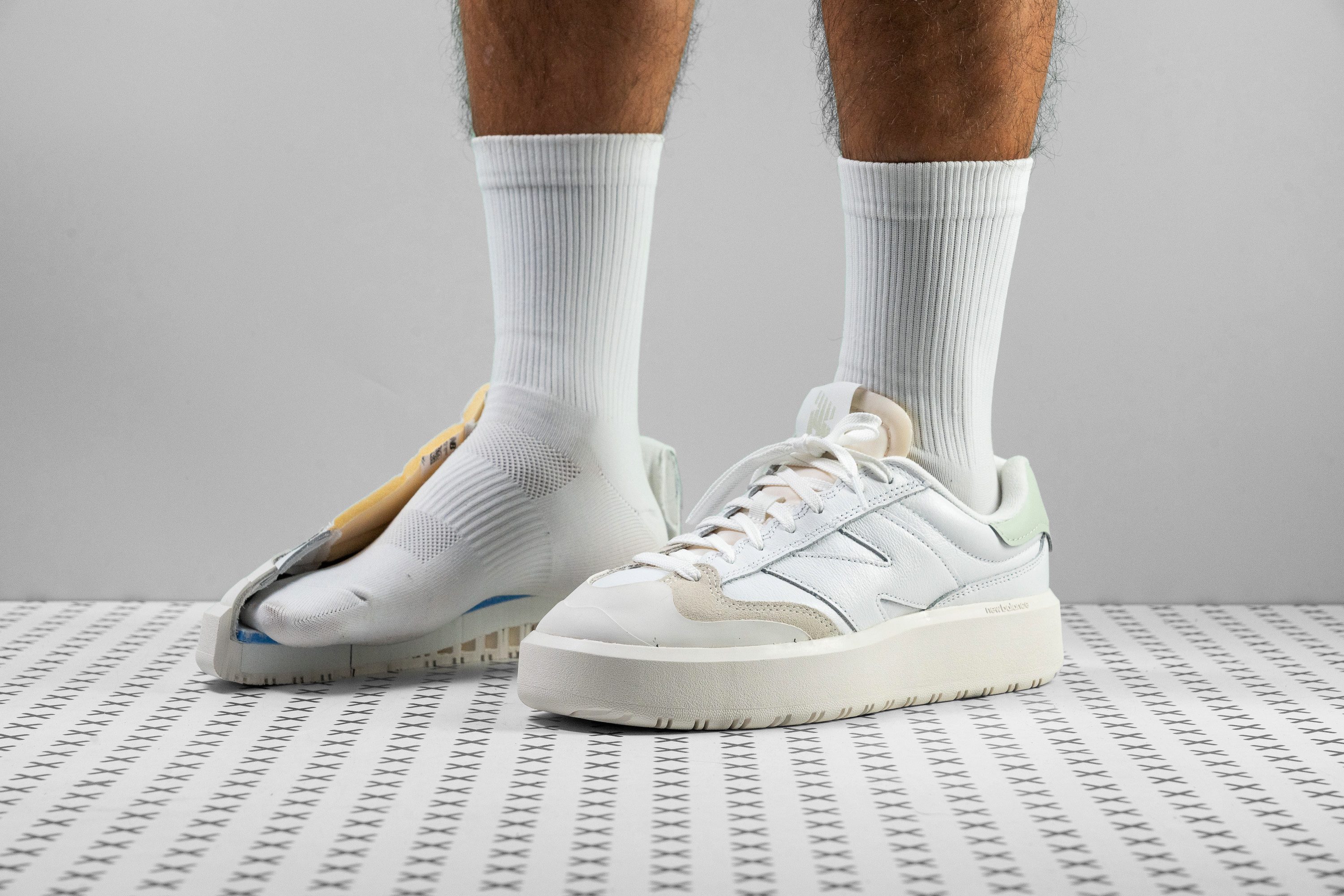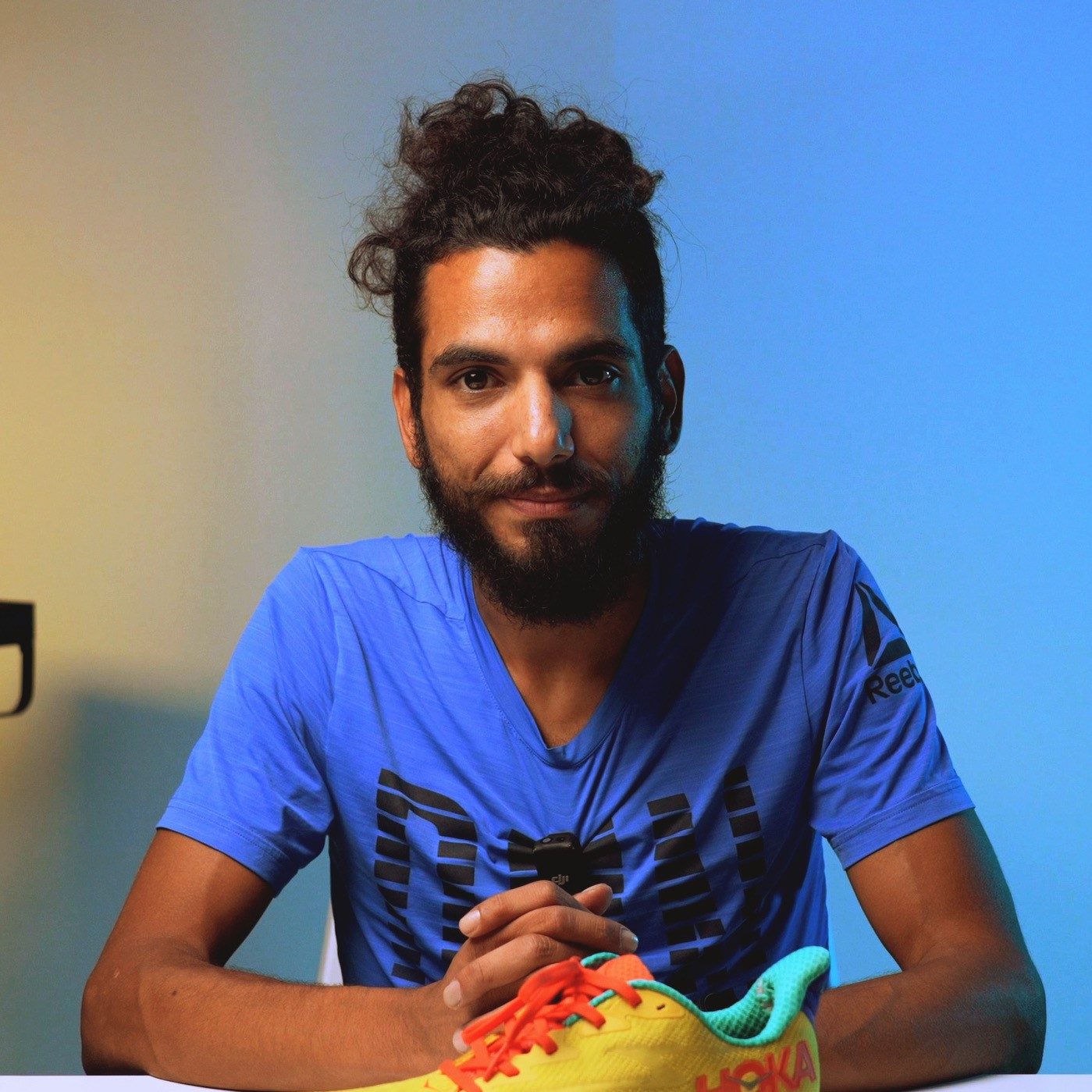Our verdict
Pros
- Exquisitely comfortable
- Subtle yet stylish design
- Looks and feels premium
- Easy on the wallet
- Height booster
- Feels supportive underfoot
- Not your everyday NB design
Cons
- Extremely heavy
- Very stiff
- Limited colorways
- Smudge magnet
Audience verdict
Comparison
The most similar trainers compared
+ + Add a shoe | |||||
|---|---|---|---|---|---|
| Audience score | 83 Bad! | 91 Great! | 87 Good! | 89 Good! | |
| Price | £110 | £130 | £80 | £130 | |
| Style | PlatformChunky | ClassicSporty | ClassicSporty | ClassicDadRetroSporty | |
| Shock absorption | - | - | - | High | |
| Energy return | - | - | - | Moderate | |
| Traction | - | - | - | High | |
| Breathability | Warm | Warm | Warm | Warm | |
| Weight lab | 22.6 oz / 641g | 16.4 oz / 464g | 14.5 oz / 410g | 13.5 oz / 383g | |
| Size | True to size | True to size | True to size | True to size | |
| Midsole softness | Firm | Firm | Firm | Firm | |
| Material | Leather | Leather | Leather | MeshSuede | |
| Season | SpringFall | Winter | Winter | SpringFall | |
| Inspired from | Tennis | Basketball | Tennis | Running | |
| Width / fit | Medium | Medium | Medium | Medium | |
| Toebox width | Medium | Narrow | Narrow | Medium | |
| Leather/suede quality | Real leather | - | Real leather | Real suede | |
| Toebox durability | Good | Good | Good | Decent | |
| Heel padding durability | Bad | Decent | Decent | Decent | |
| Outsole durability | Decent | Decent | Bad | Good | |
| Heel stack lab | 36.9 mm | 30.0 mm | 26.4 mm | 35.4 mm | |
| Stiffness | Stiff | Stiff | Stiff | Stiff | |
| Tongue padding | Average | Average | Thin | Average | |
| Drop lab | 12.3 mm | 10.0 mm | 11.3 mm | 11.1 mm | |
| Forefoot | 24.6 mm | 20.0 mm | 15.1 mm | 24.3 mm | |
| Removable insole | ✓ | ✓ | ✓ | ✓ | |
| Heel tab | None | Pull tab | None | None | |
| Torsional rigidity | Stiff | Stiff | Moderate | Moderate | |
| Heel counter stiffness | Moderate | Moderate | Moderate | Moderate | |
| Reflective elements | ✗ | ✗ | ✗ | ✓ | |
| Closure | Laces | Laces | Laces | Laces | |
| Top | Low top | Low top | Low top | Low top | |
| Ranking | #119 Bottom 1% | #60 Top 50% | #107 Bottom 11% | #84 Bottom 30% | |
| Popularity | #81 Bottom 33% | #95 Bottom 21% | #116 Bottom 4% | #9 Top 8% |
Who should buy
We recommend the New Balance CT302 to:
- Anyone who enjoys the comfort of New Balance trainers, but wants a change from their usual “dad-shoe” aesthetic
- Fans of platform trainers looking for a chunky, height-boosting, tennis-inspired kick
- Those in the market for a simple yet versatile shoe that will complement most outfits
- Thrifty folks looking for a wallet-friendly sneaker that looks and feels high-end
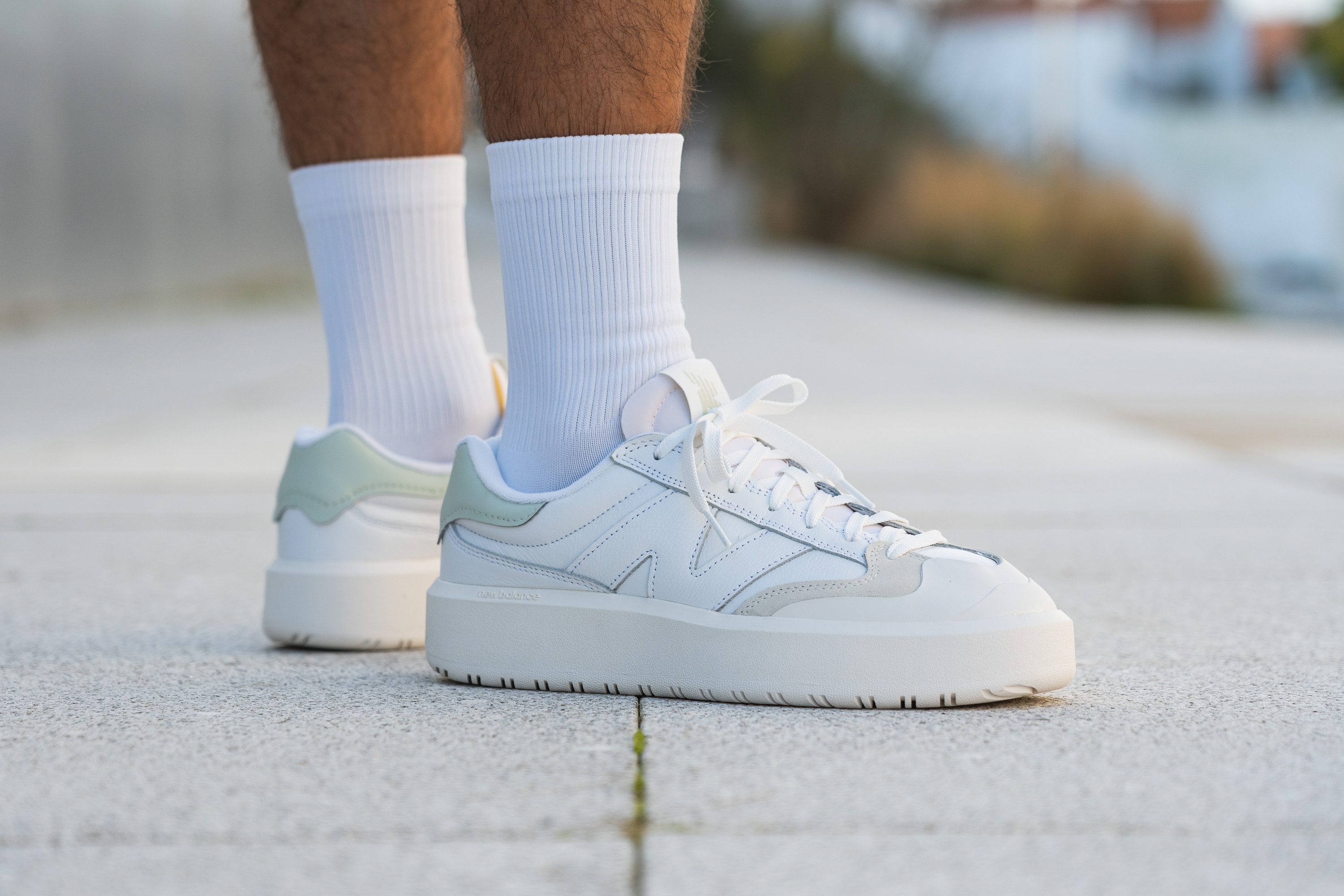
Who should NOT buy
The CT302 is as chunky on the scale as it looks. With a combined weight of over 2 lbs, this shoe definitely isn’t suited for all-day wear.
We recommend the Reebok Club C 85 as another tennis-inspired sneaker that’s much lighter on the foot.
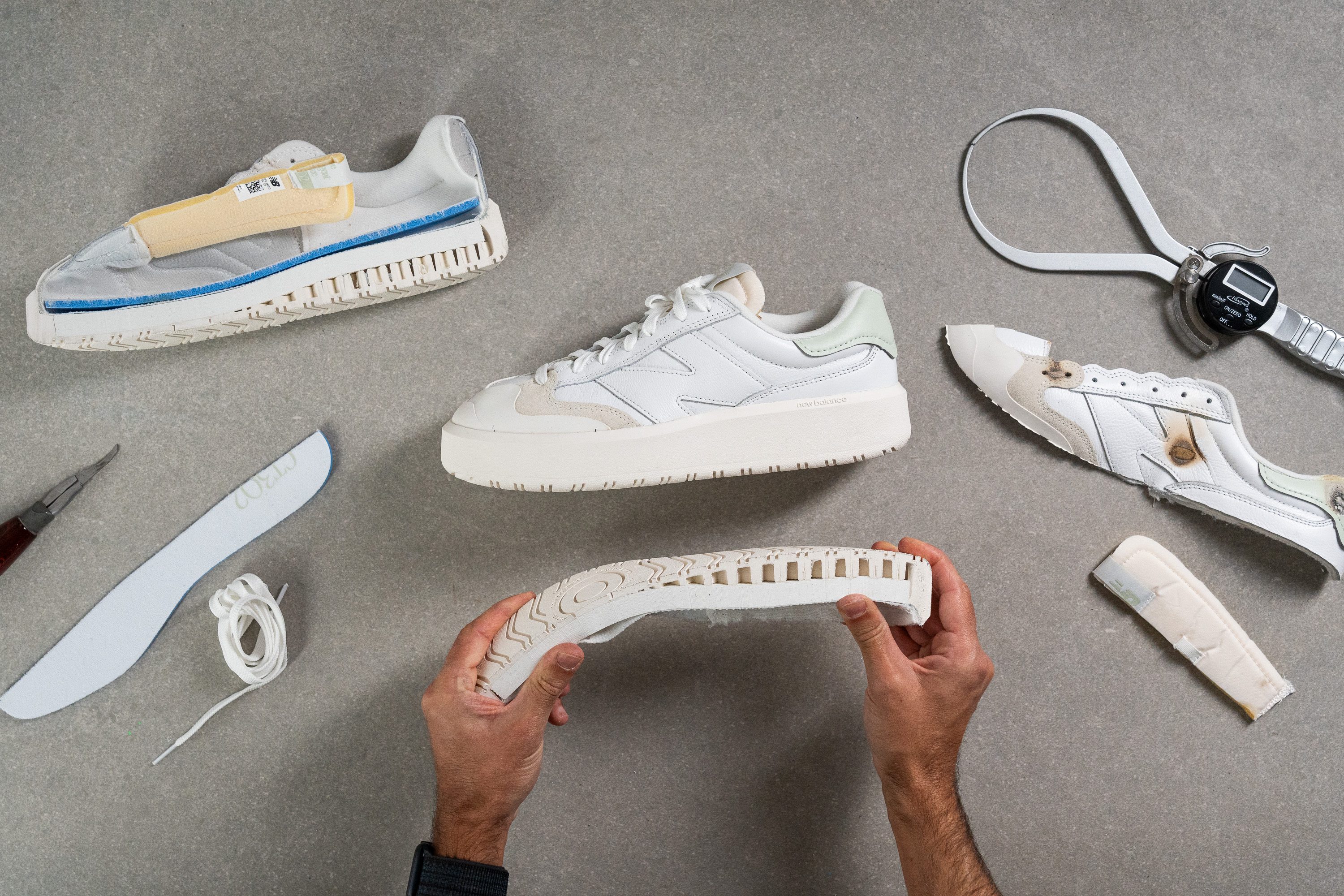
Cushioning
Heel stack
Using our caliper, we measured the CT302’s stack to be 36.9 mm high at the heel. This towers over the average sneaker and gives us a nice little height boost when wearing the shoe. Having such a high stack also amplifies our sense of perceived cushioning as it absorbs the impact of our landings.
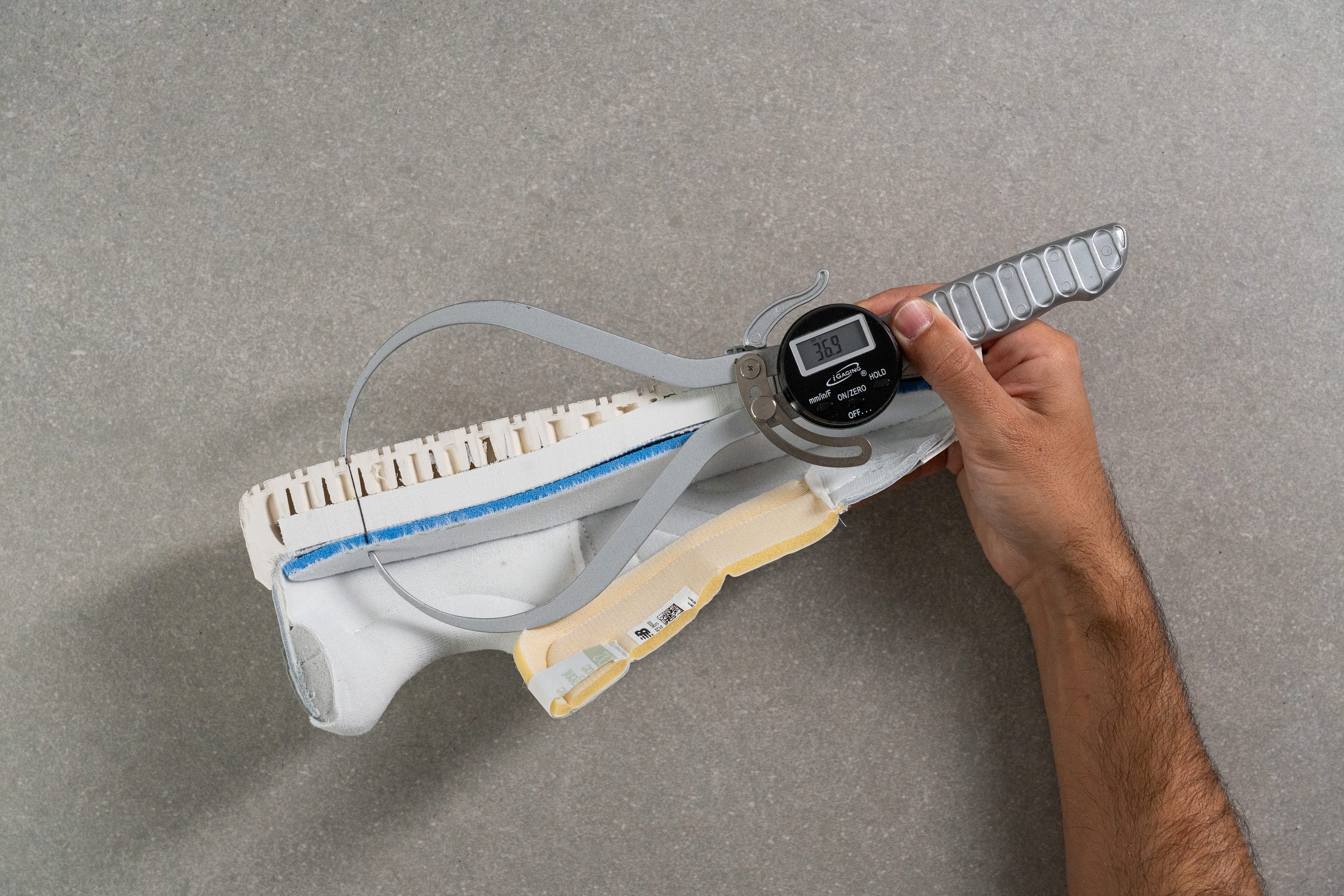
| CT302 | 36.9 mm |
| Average | 30.7 mm |
Forefoot stack
The CT302’s stack is also more substantial than average at the forefoot, measuring 24.6 mm high according to our calliper.
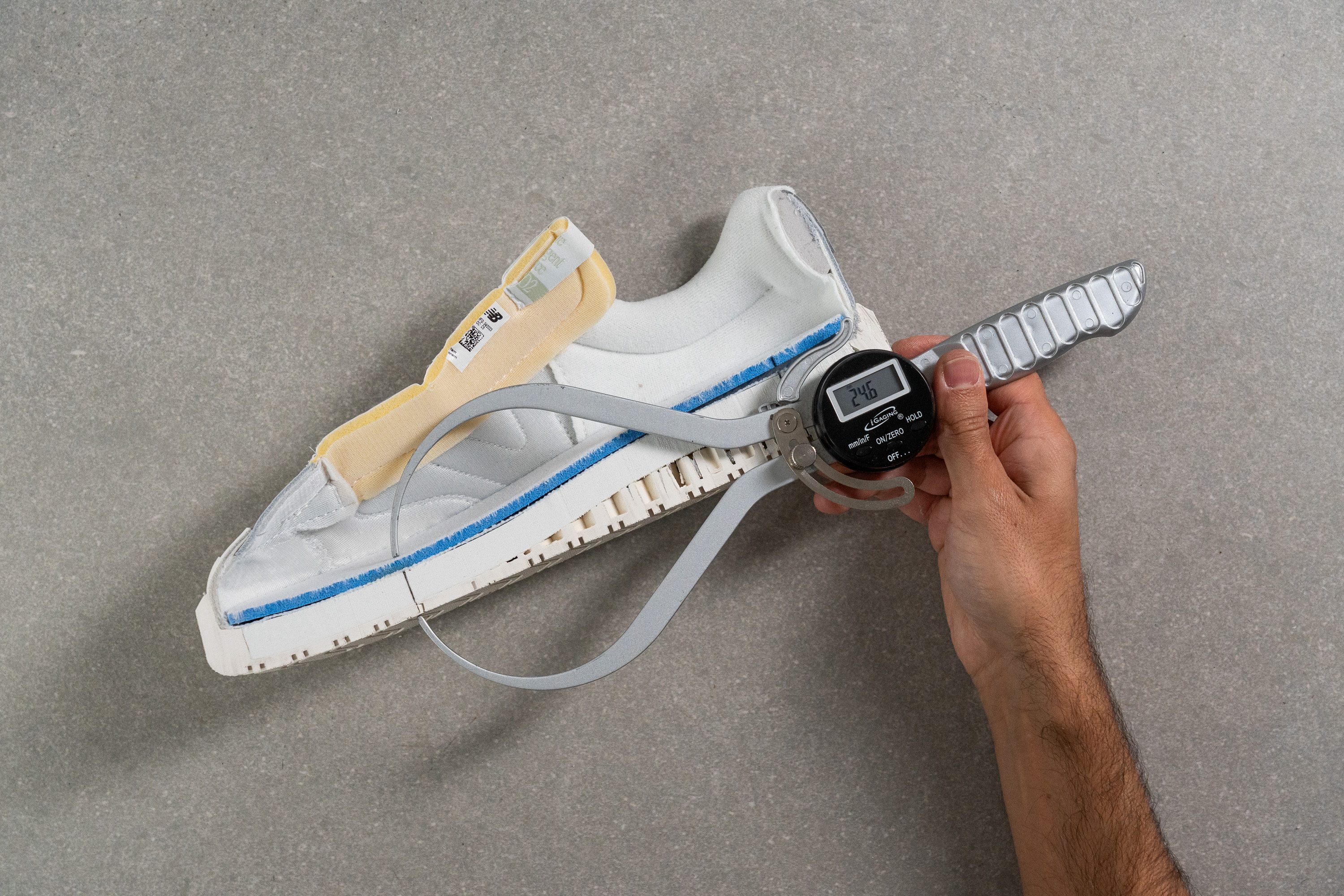
This robust stack almost entirely erases any sensation of the ground below as we walk around, leaving us feeling well-protected from any underfoot hazards.
For those who prefer a more grounded feeling from their trainers, we recommend the more low-profile Adidas Gazelle instead.
| CT302 | 24.6 mm |
| Average | 19.5 mm |
Drop
The difference in our stack measurements leaves the CT302 with a drop height of 12.3 mm. This relatively steep offset ensures that we have more cushioning at the heel for more comfortable landings as we walk.
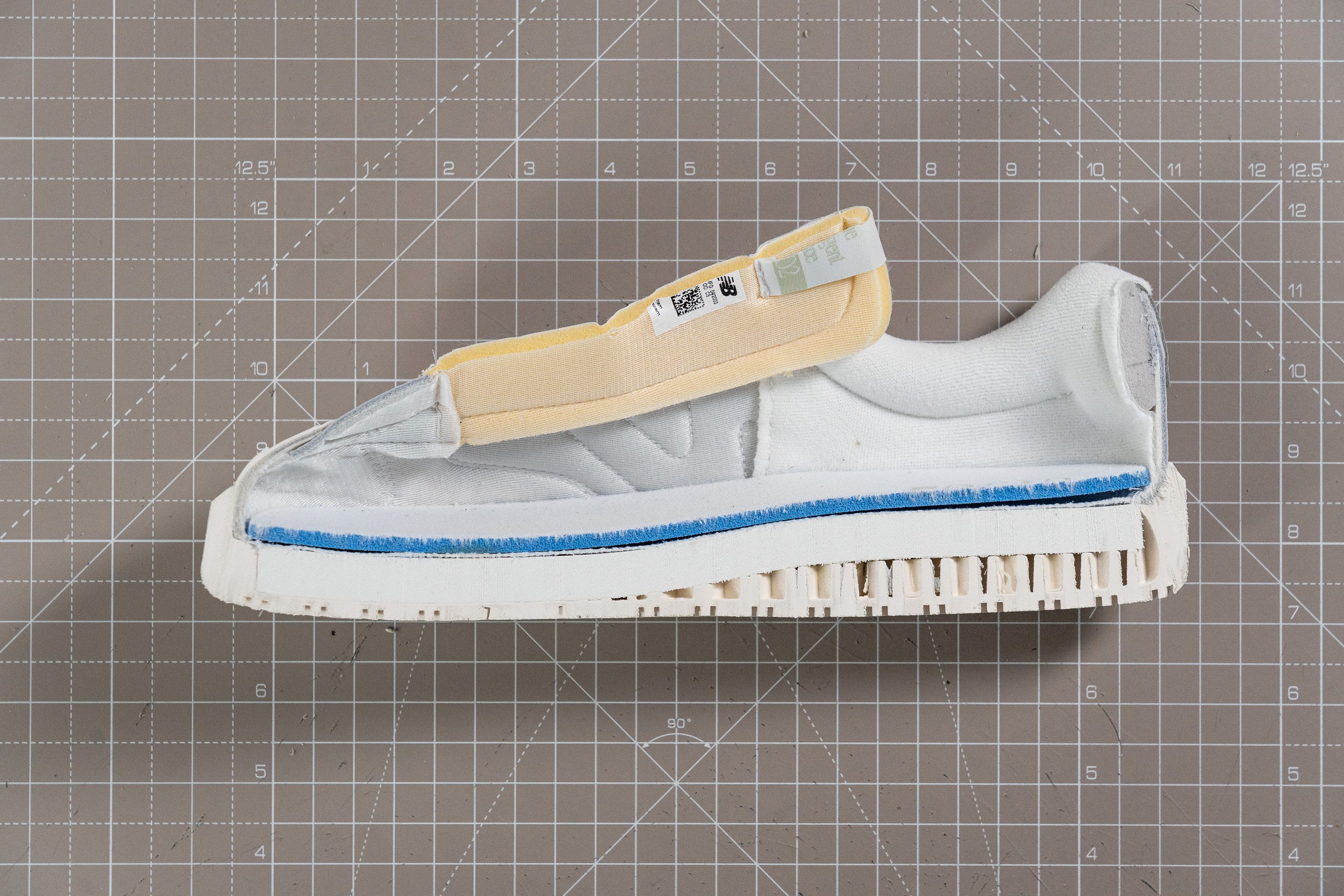
| CT302 | 12.3 mm |
| Average | 11.2 mm |
Midsole softness
We pressed our durometer against the narrow strip of foam that makes up the CT302’s midsole and got a rather firm reading of 33.3 HA.
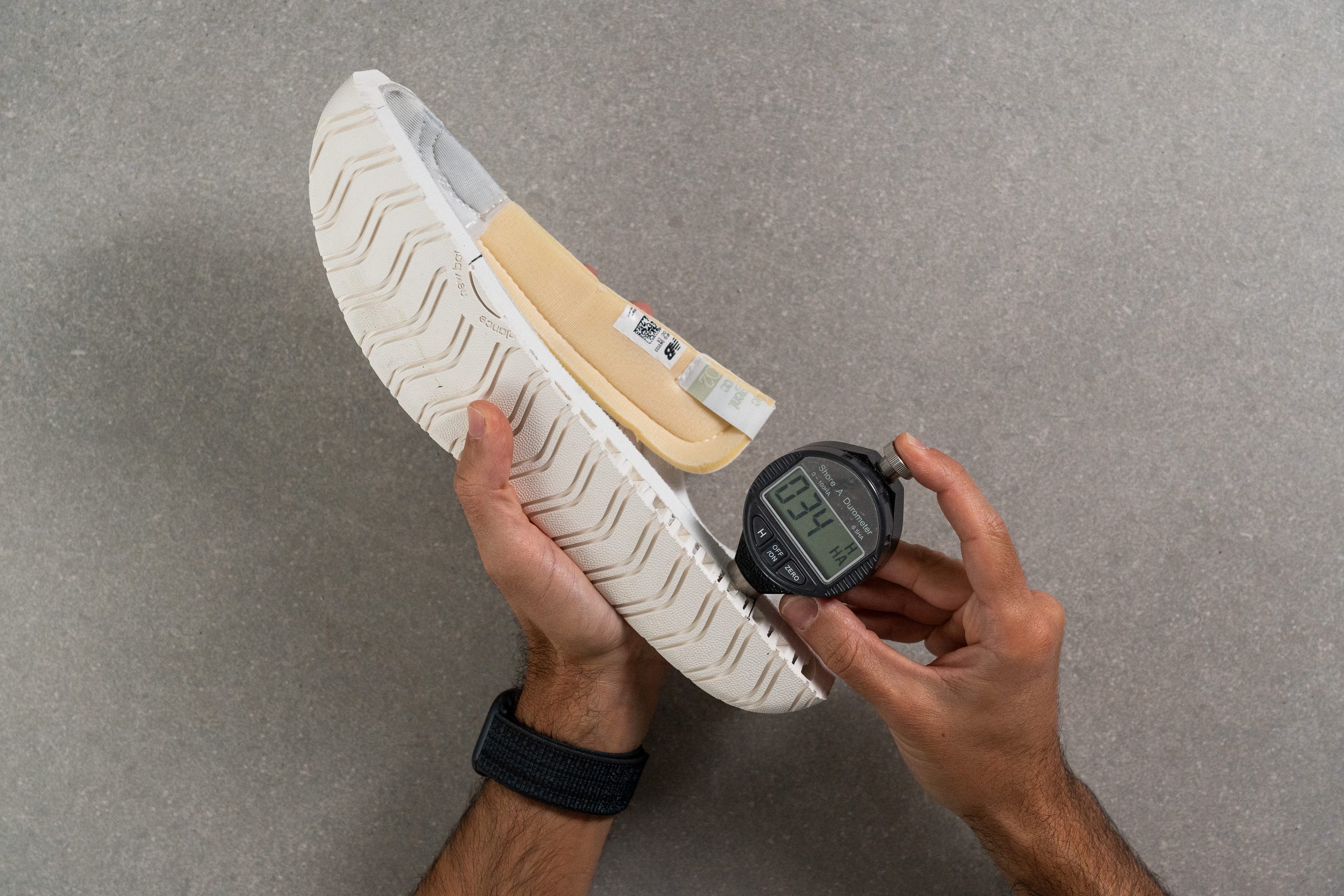
However, as is clear from looking at a cross-section of the shoe in the previous section, the midsole isn’t the only factor in the shoe’s cushioning. The outsole at the heel features many cutout sections that allow it to compress as we apply weight onto the shoe.
As a result, CT302's cushioning feels much softer than our durometer implies.
| CT302 | 33.3 HA |
| Average | 28.6 HA |
Size and fit
Size
New Balance CT302 fits true to size (19 votes).
Internal length
| CT302 | 271.7 mm |
| Average | 272.3 mm |
Width / Fit
Despite its odd silhouette, we found that the NB CT302 offers an expected medium-width fit.
Once the shoe's gel mould solidified, we measured its widest area with a calliper. The tool returned a slightly above-average reading of 93.8 mm confirming its D medium fit.
Please note that wide versions are not available for this New Balance sneaker.
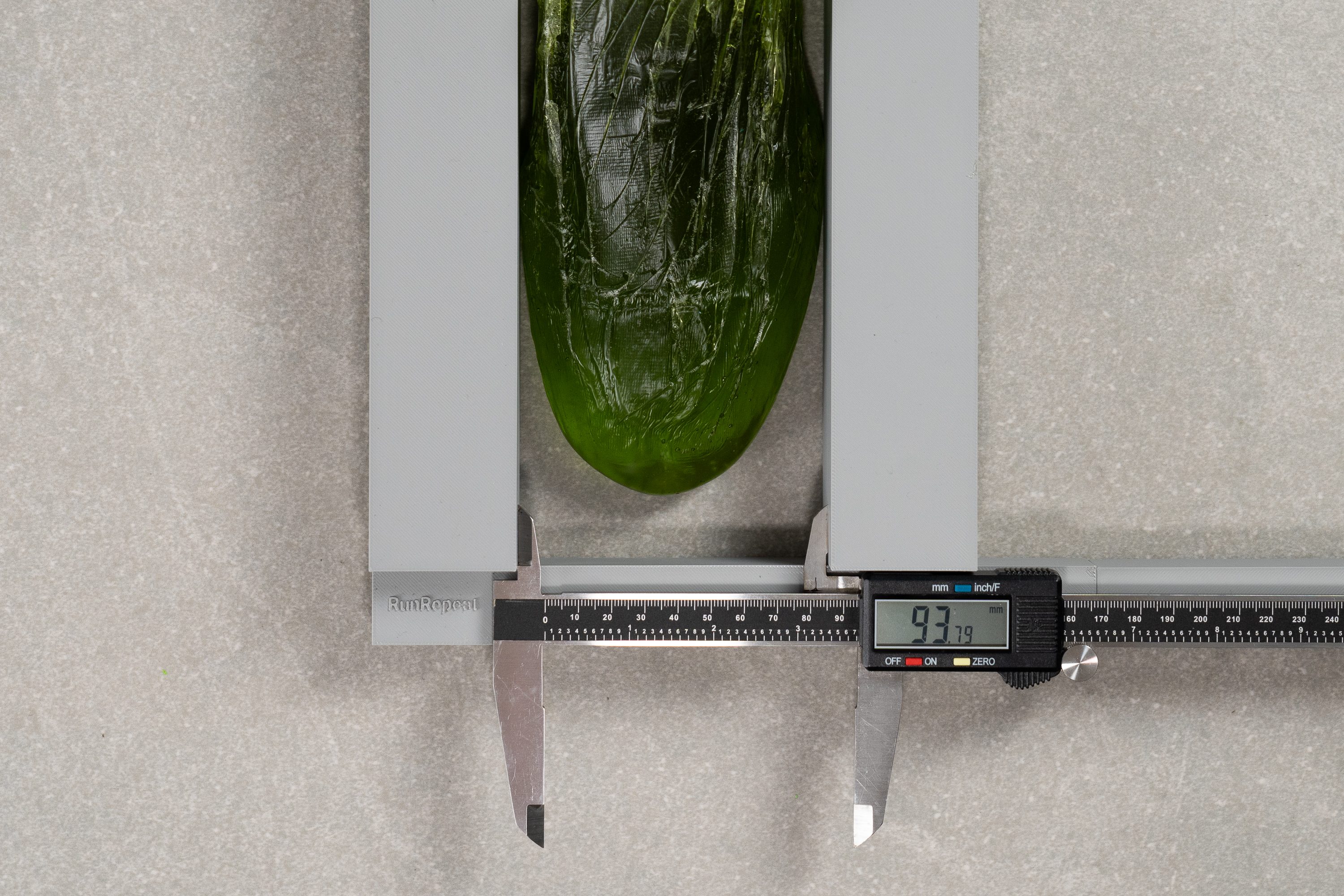
| CT302 | 93.8 mm |
| Average | 92.5 mm |
Toebox width
The CT302 has no aggressive tapering either. Its toebox is rounded and accommodating with a standard width of 68.7 mm near the big toe.
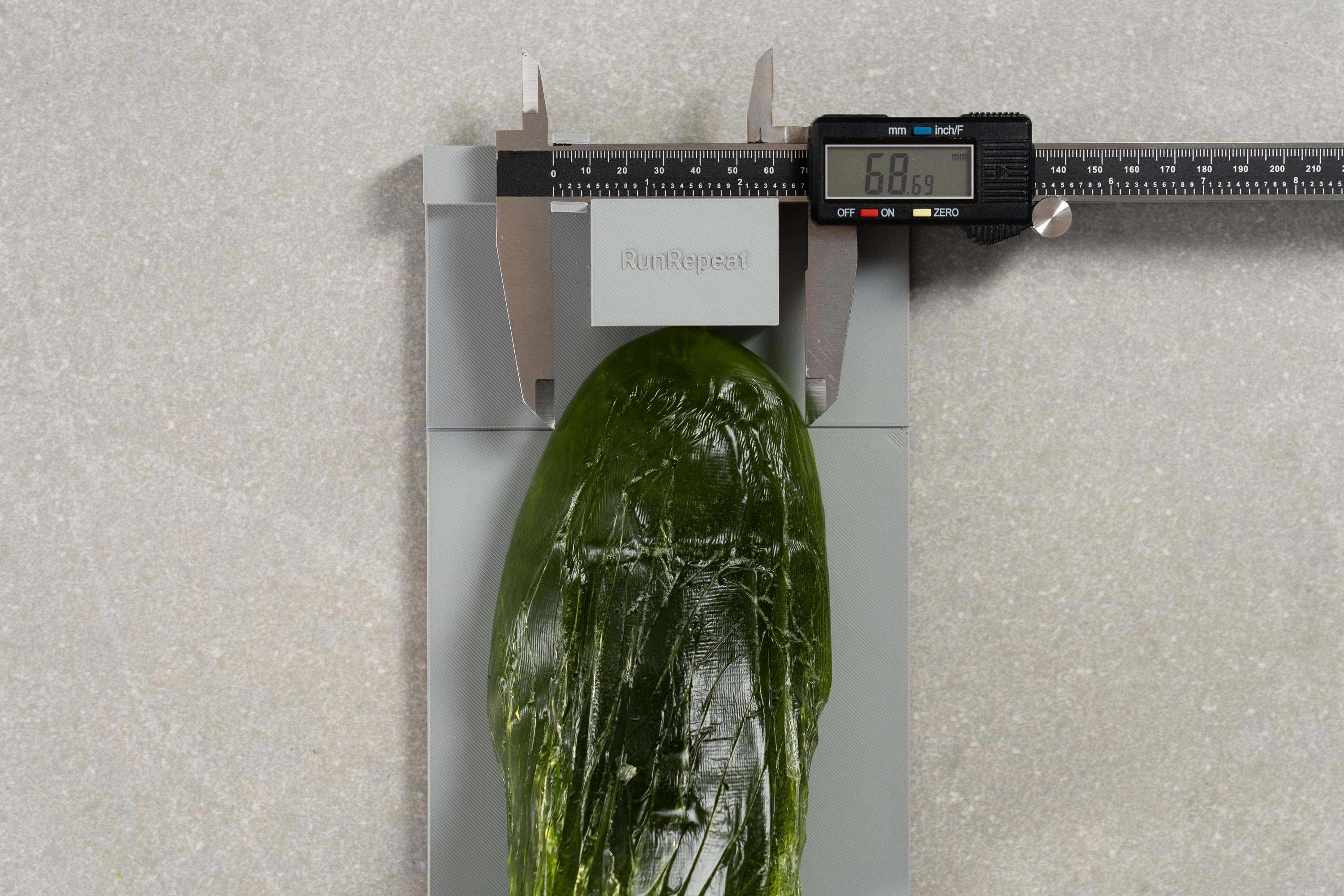
| CT302 | 68.7 mm |
| Average | 68.9 mm |
Toebox height
There is plenty of vertical space too! With a toebox height of 30.0 mm, the leather upper never pressed on top of our toes in this New Balance sneaker.
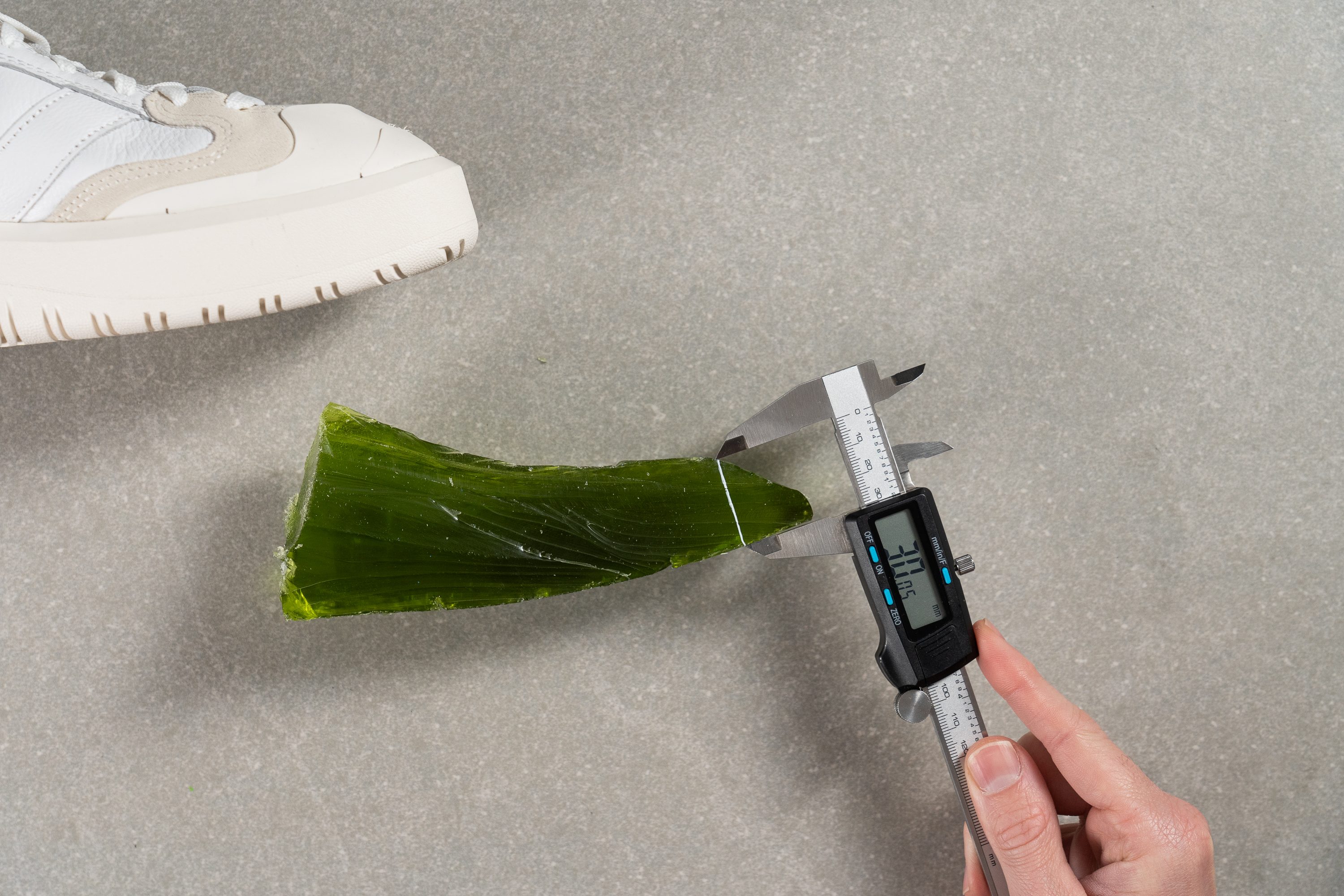
| CT302 | 30.0 mm |
| Average | 27.8 mm |
Flexibility / Stiffness
To test the longitudinal stiffness of the CT302, we secured it to our workbench and measured the amount of force required to torque it 90 degrees. With a whopping 51.8N of force needed to bend the shoe to the desired point, the CT302 is much stiffer than the average sneaker.
While this does also factor into how steady the shoe feels underfoot, it does come at the expense of comfort as the shoe resists the natural flexion of our foot during our stride. This shouldn't be an issue for normal day-to-day use, but it certainly precludes the CT302 from being a comfy all-day shoe.
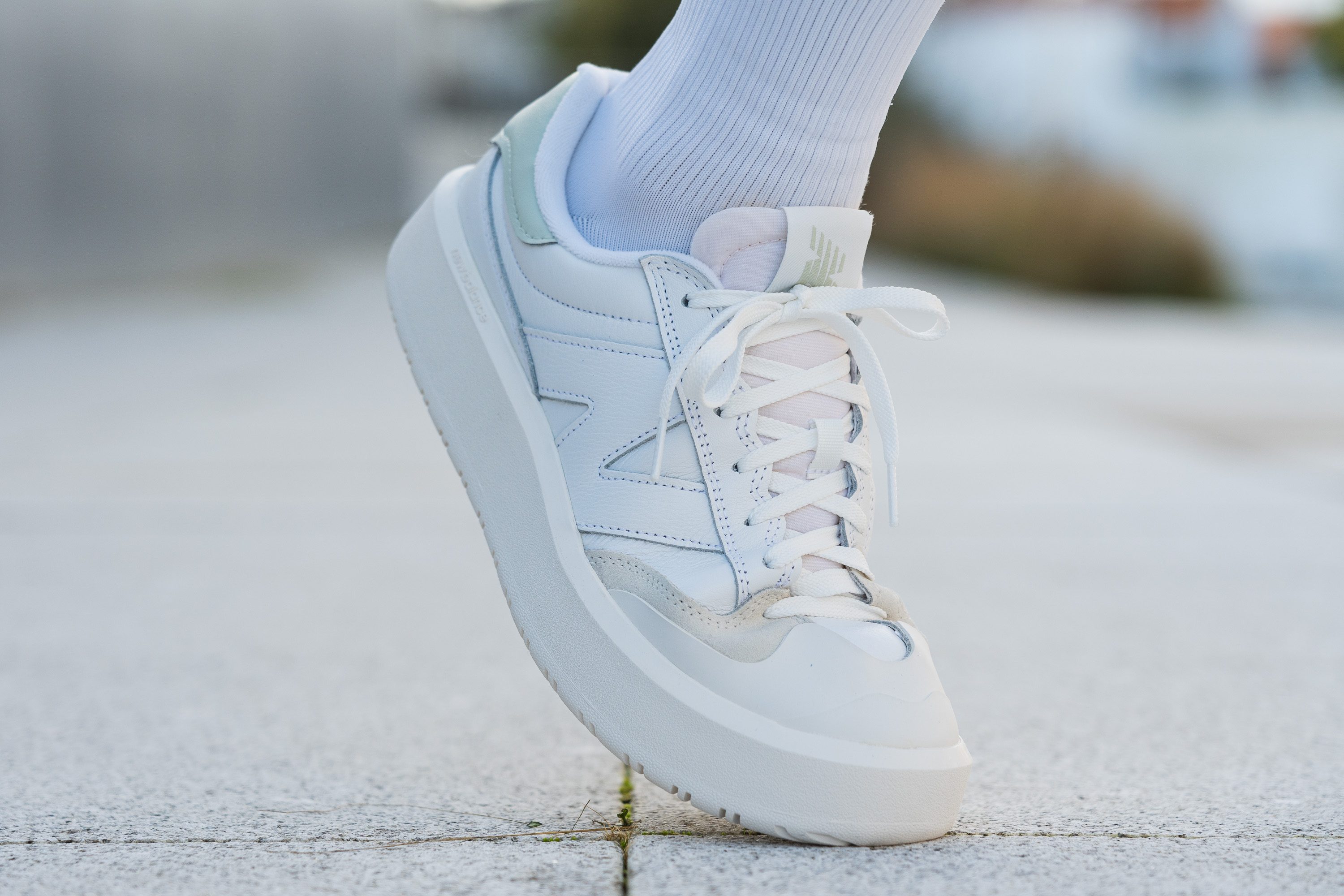
This test follows an older methodology, which is why you don't see recently tested shoes in the chart. Results from different methodologies can not be compared.
| CT302 | 51.8N |
| Average | 23.3N |
Weight
The CT302 could certainly use a diet. Tipping the scale at a hefty 22.6 oz (641g) it’s way heavier than the average sneaker. This is no doubt a result of the shoe’s massive stack and ample amount of outsole rubber. This makes the CT302 a less-than-ideal choice for all-day wear as lugging around the combined weight of 2.8 lbs (1.3 kg) will feel like walking with ankle weights on after some time.
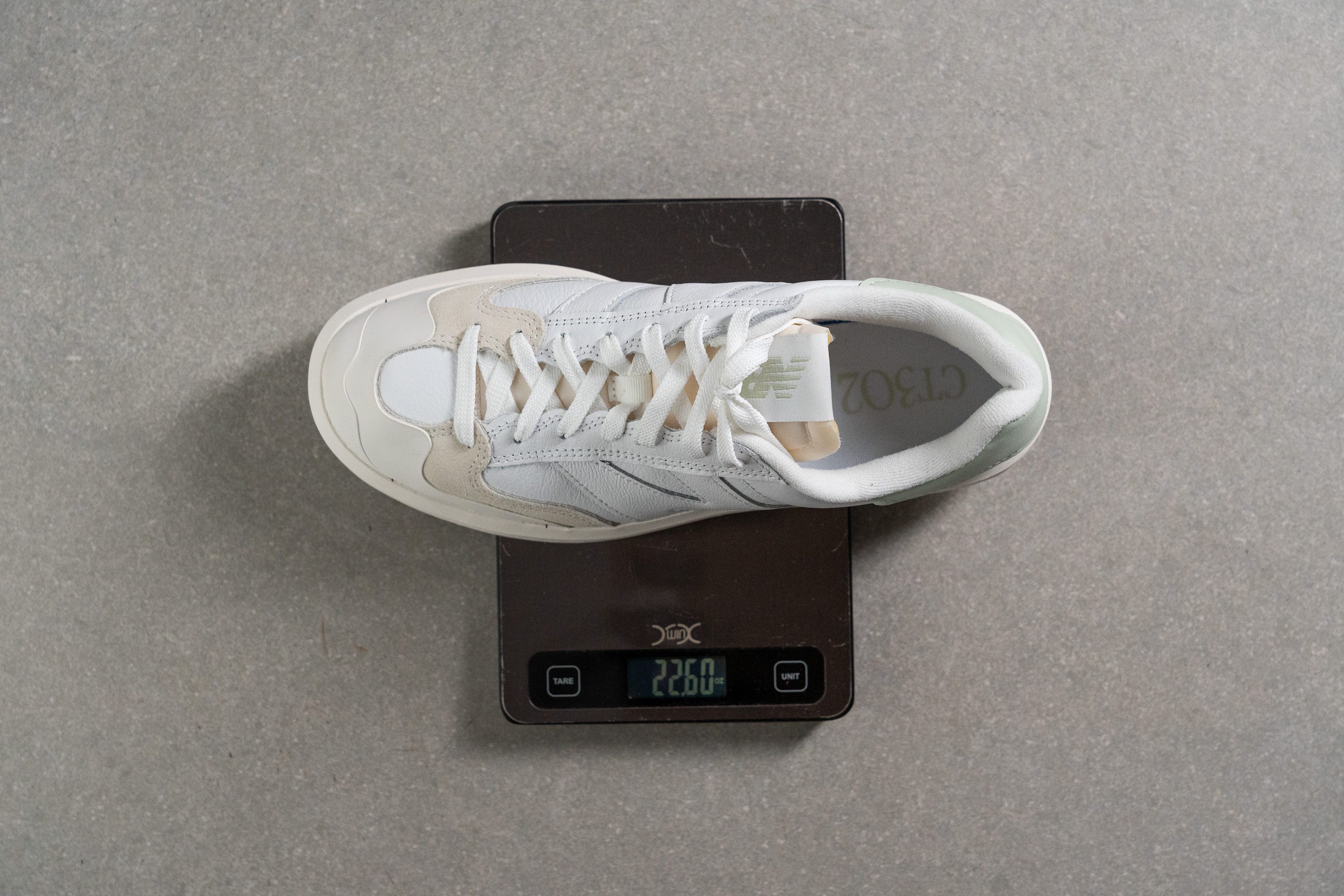
| CT302 | 22.6 oz (641g) |
| Average | 13.8 oz (390g) |
Breathability
Leather shoes tend not to be very breathable, a fact that is borne out when putting the CT302 through our smoke test. The smoke has almost no room to escape, with only thin wisps making their way through the shoe’s tongue. This poor ventilation isn't the worst we've seen, therefore earning the CT302 a below-average breathability score of 2 out of 5. This subpar airflow means that we don’t recommend going sockless in this shoe as they’ll start to stink in no time.
Looking at a backlit cross-section of the CT302’s upper, light only manages to shine through the shoe’s somewhat porous tongue, thus explaining its performance in our previous test.
inspecting the toebox under our microscope feels like looking at the surface of the moon; it appears smooth and soft from a distance but is actually quite textured and striking. Besides that, there are obviously no holes or perforations to support airflow through the shoe.
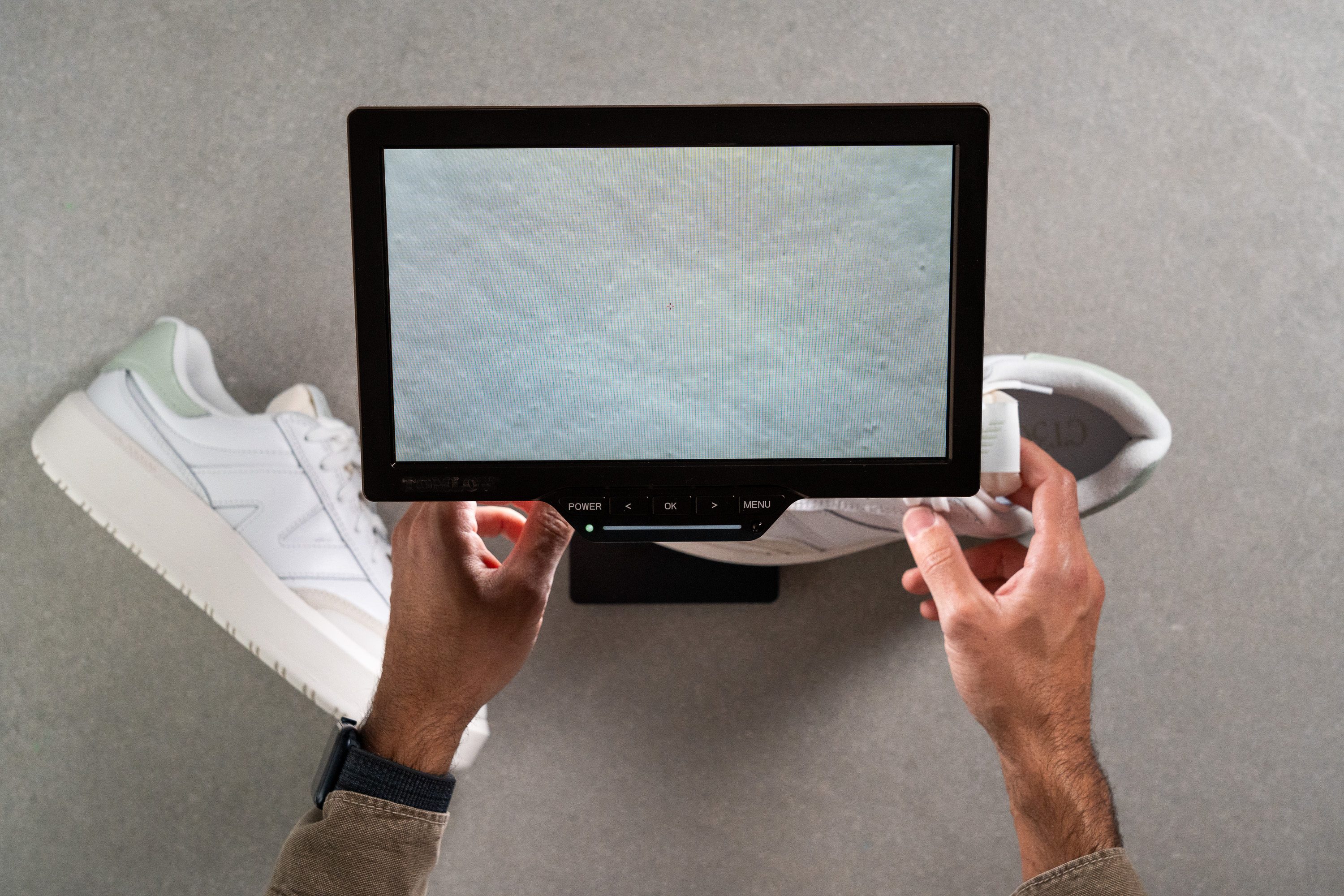

| CT302 | 2 |
| Average | 3 |
Stability
Lateral stability test
The CT 302 feels incredibly well-planted as we shifted our weight from side to side in the shoe. While we don’t usually expect such high-stacked shoes to feel so stable, New Balance achieves this feat in a number of ways that we’ll explore below.
Torsional rigidity
With its robust stack of dense foam and rubber, we weren’t surprised to find that we could barely get the shoe to budge as we attempted to bend and twist it in our hands. We therefore give the CT302 the maximum torsional rigidity score of 5 out of 5.
Being this inflexible is a key factor in the shoe’s stable feeling underfoot as it maintains a steady and level base that mitigates any natural pronation of our foot as we walk around.
| CT302 | 5 |
| Average | 3.6 |
Heel counter stiffness
We faced an average level of resistance as we squeezed and prodded the CT302’s heel counter, earning it a middle-of-the-road score of 3 out of 5.
This in conjunction with the shape of the heel cup means that we’re able to achieve a secure rearfoot lockdown that holds the heel in place without uncomfortable squeezing our Achilles tendon.
| CT302 | 3 |
| Average | 3.2 |
Midsole width - forefoot
Apart from being tall, the CT302’s midsole is also broader than average, measuring 112.9 mm wide at the forefoot according to our caliper measurements. Having such a wide base is certainly another major contributor to the shoe’s stability as it offsets being so high off the ground.
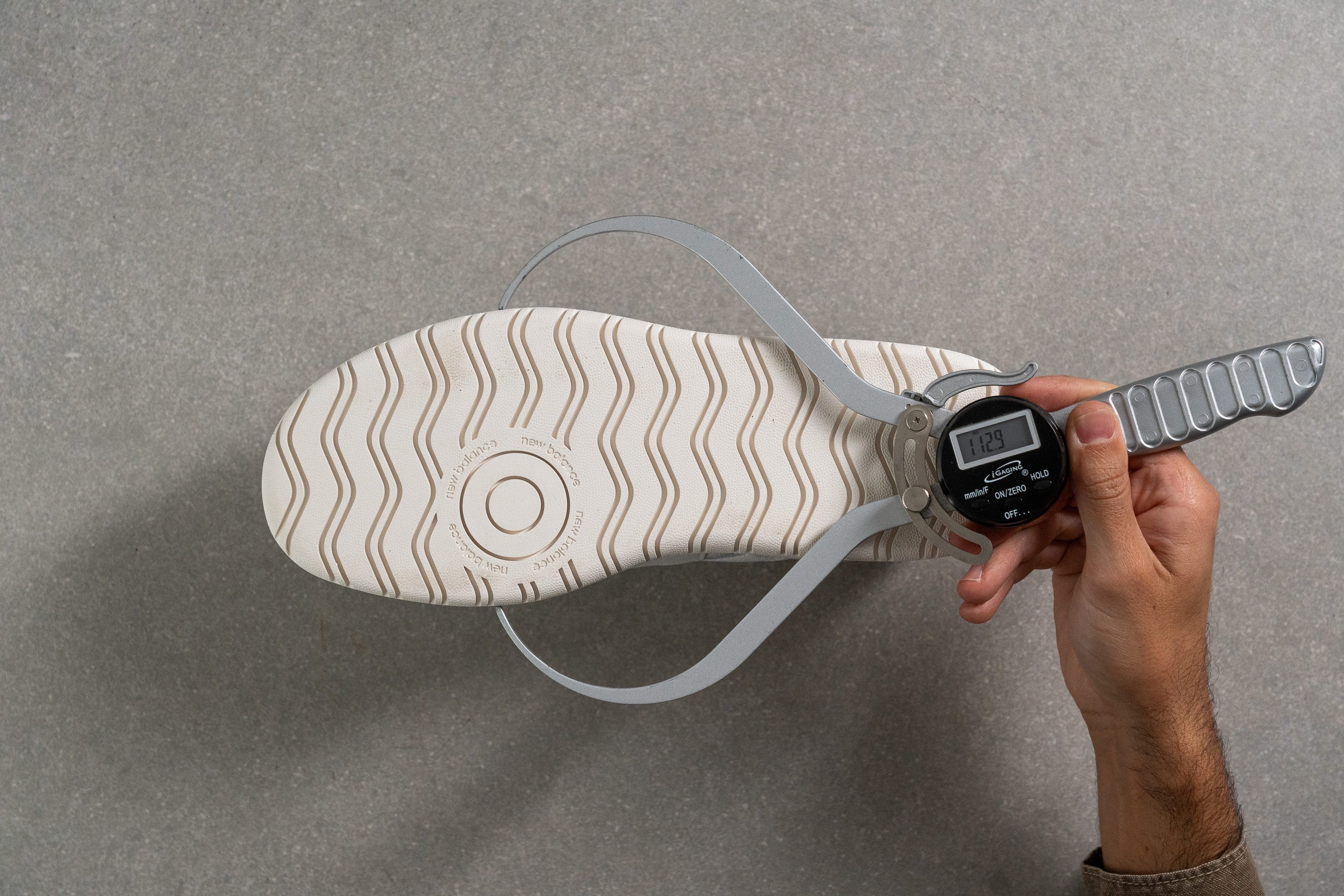
| CT302 | 112.9 mm |
| Average | 108.9 mm |
Midsole width - heel
At 82.4 mm wide, the CT302’s midsole is just as robust at the heel. This is also wider than average and gives us plenty of platform to ensure stable landings when walking around in this shoe.
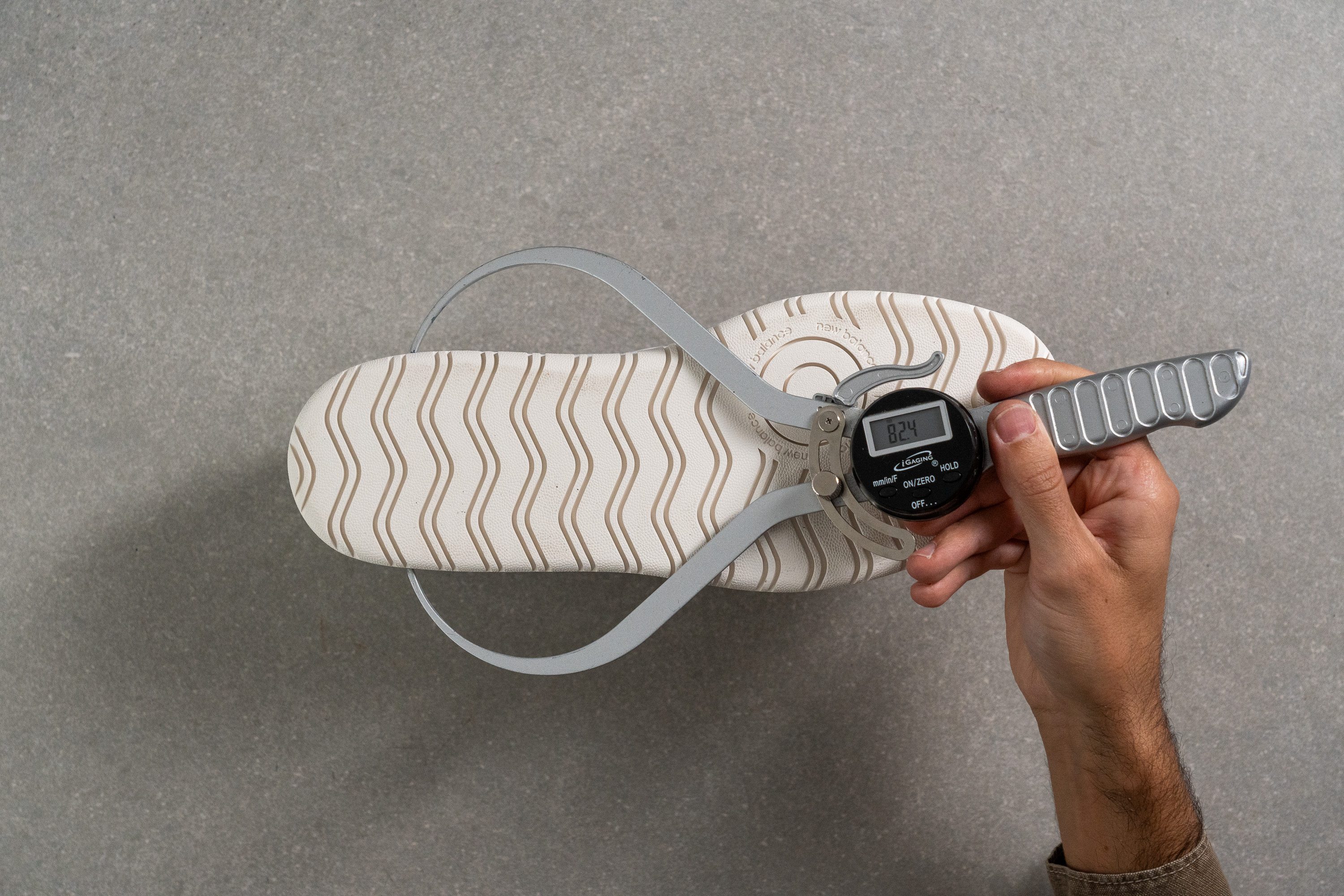
| CT302 | 82.4 mm |
| Average | 84.0 mm |
Durability
Leather/Suede quality
Pyromaniacs rejoice as we pull out our trusty butane torch to test the CT302’s upper materials, starting with the clearly synthetic heel insert which bubbles and melts away. The rest of the leather and the little piece of suede by the toebox, on the other hand, are the genuine article.
The authenticity of the leather is clear by how the materials get scorched rather than catch fire and melt.
| CT302 | Real leather |
Toebox durability
The CT302’s toebox is heavily fortified with rubber, thus making it the best prepared to contend with our Dremel test. Our usually mighty tool was only able to grind off little flecks of material, with only a minor dent in the aftermath of the four-second test.
This stellar performance earns the CT302 a perfect 5 out of 5 for toebox durability.
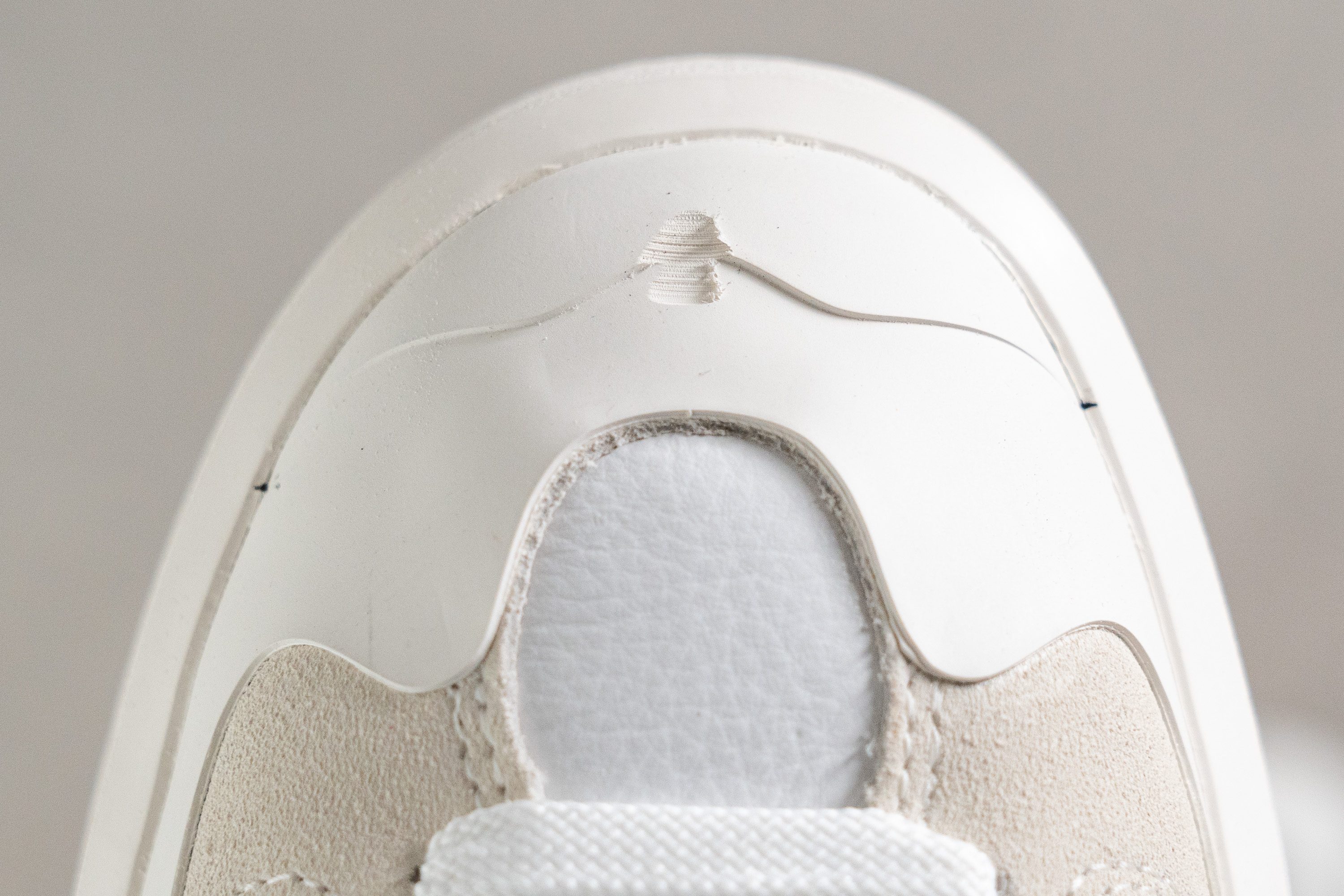
| CT302 | 5 |
| Average | 3.7 |
Heel padding durability
We turn our attention to the heel counter and the Dremel seems to have little effect over the course of the four-second test. However, upon removing the grinding element, we were surprised to find that the tool had steadily eaten away a good chunk of the padding.
This scratchy and unsightly hole leads us to give the CT302 a heel padding durability score of 1 out of 5.
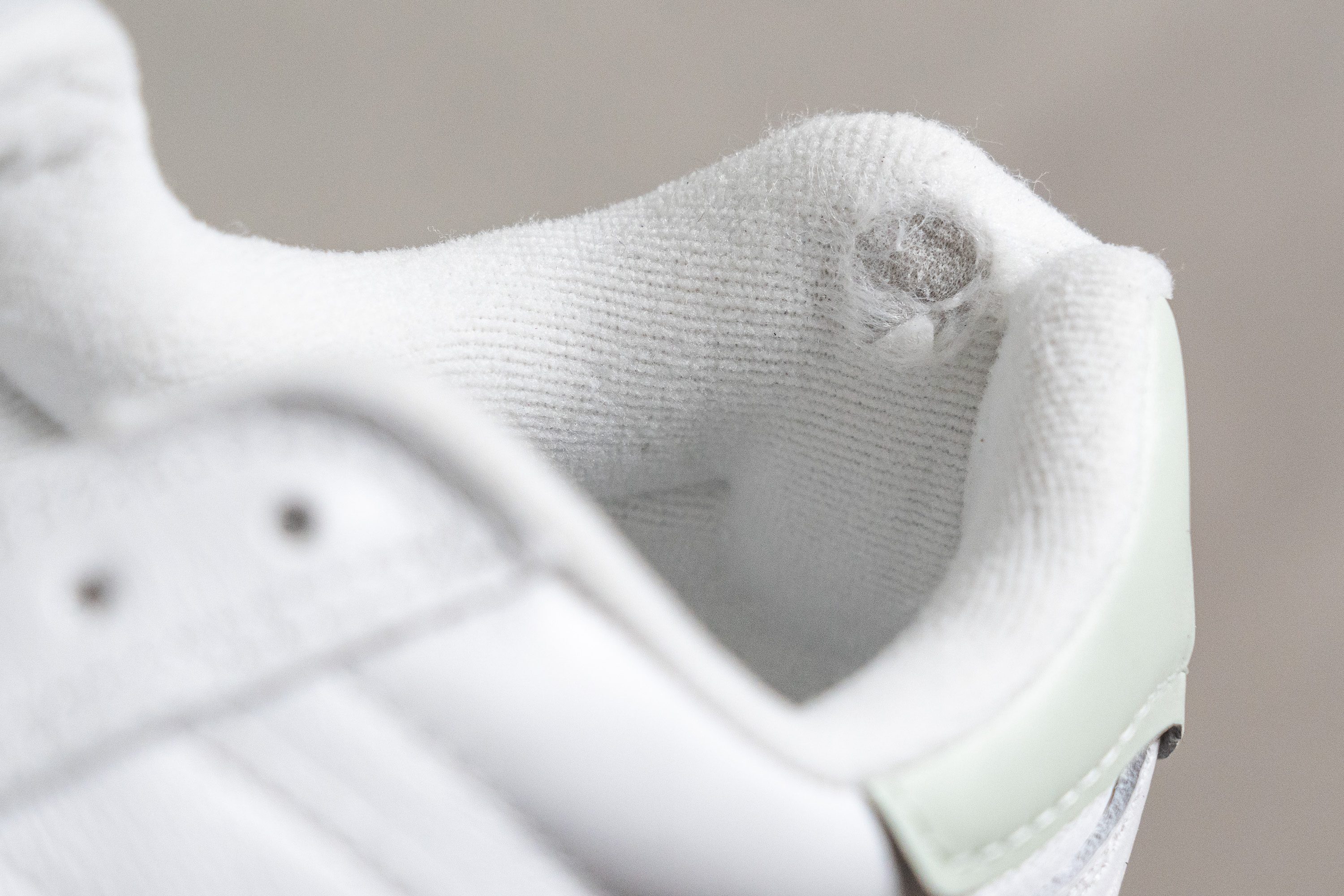
| CT302 | 1 |
| Average | 3.2 |
Outsole hardness
Using our durometer to measure the hardness of the CT302’s outsole reveals it to be right on par with the current lab average with a reading of 84 HC. This level of hardness usually denotes a healthy mix of grip and durability.
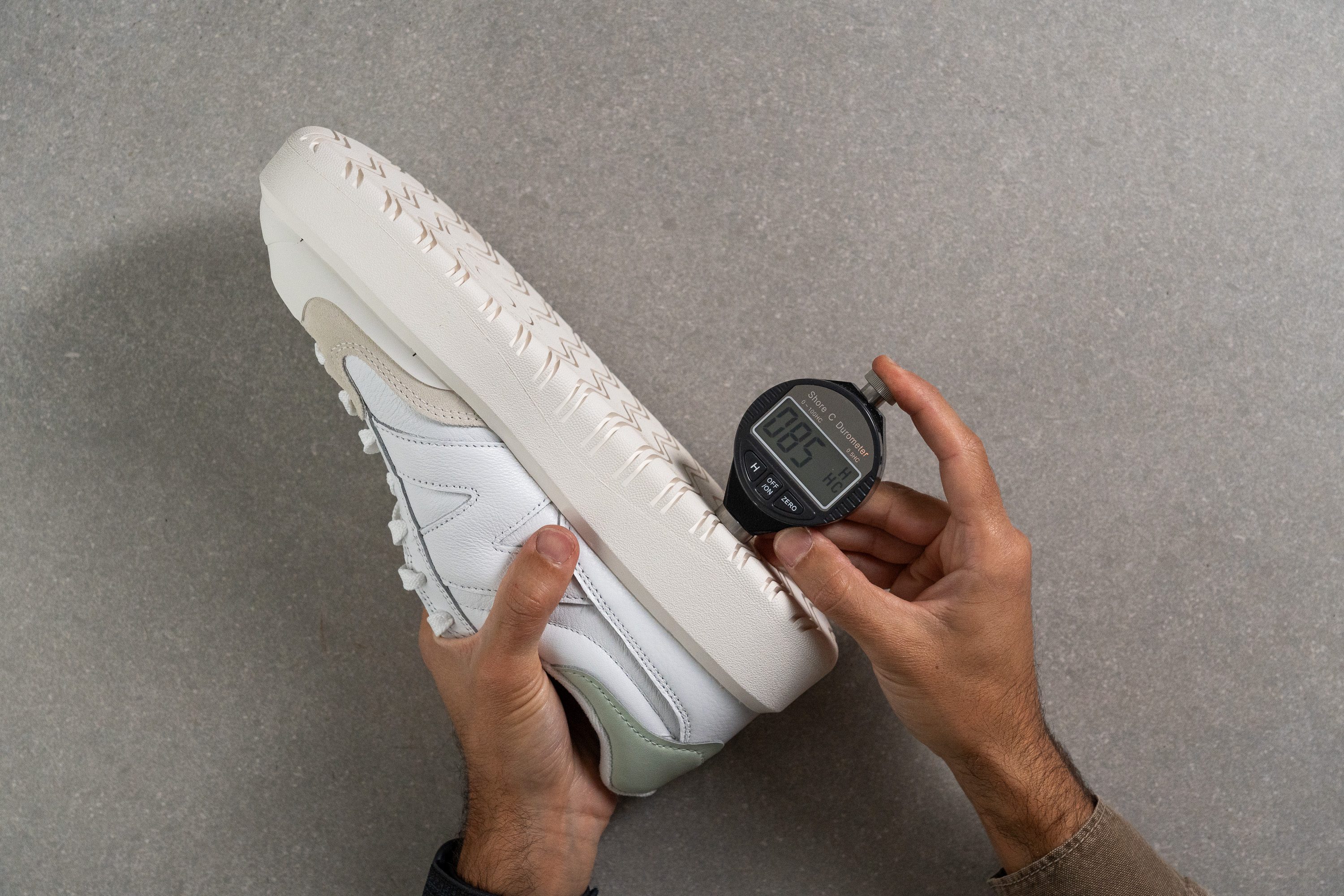
| CT302 | 84.3 HC |
| Average | 85.7 HC |
Outsole durability
To test the durability of the outsole, we fired up the Dremel for a third and final time. The grinding element, this time spinning at 10K RPM, sends up a snowstorm of rubber as soon as it makes contact with the CT302’s outsole, with a pile of powder growing as the test wears on.
Once the twenty seconds were up, we assessed the damage with our tyre tread gauge and found that, despite the visually dramatic nature of the test, we had only ground off 1.06 mm of material. This is less than the average sneaker loses in this same test and means that the CT302’s outsole should last 500 miles before any major signs of wear and tear.
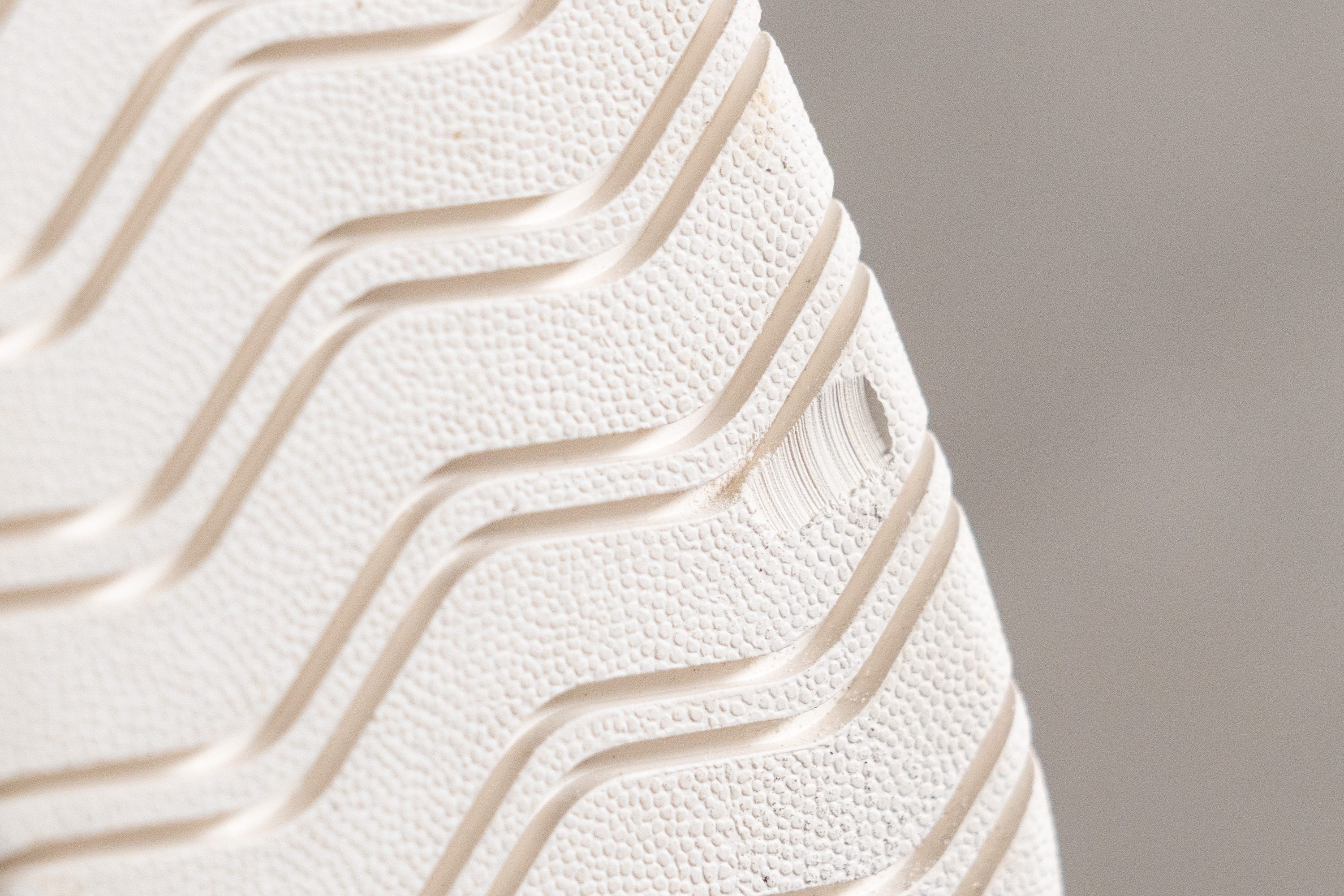
| CT302 | 1.1 mm |
| Average | 1.1 mm |
Outsole thickness
Using our caliper, we measured the CT302's outsole to be just shy of our current lab average at 5.1 mm thick. While one could argue that there is actually more rubber than that, we posit that once that portion of the outsole is worn all the way through, the shoe should be considered kaput. Those cutaway portions of the outsole actually work in conjunction with the midsole to provide some added cushioning.
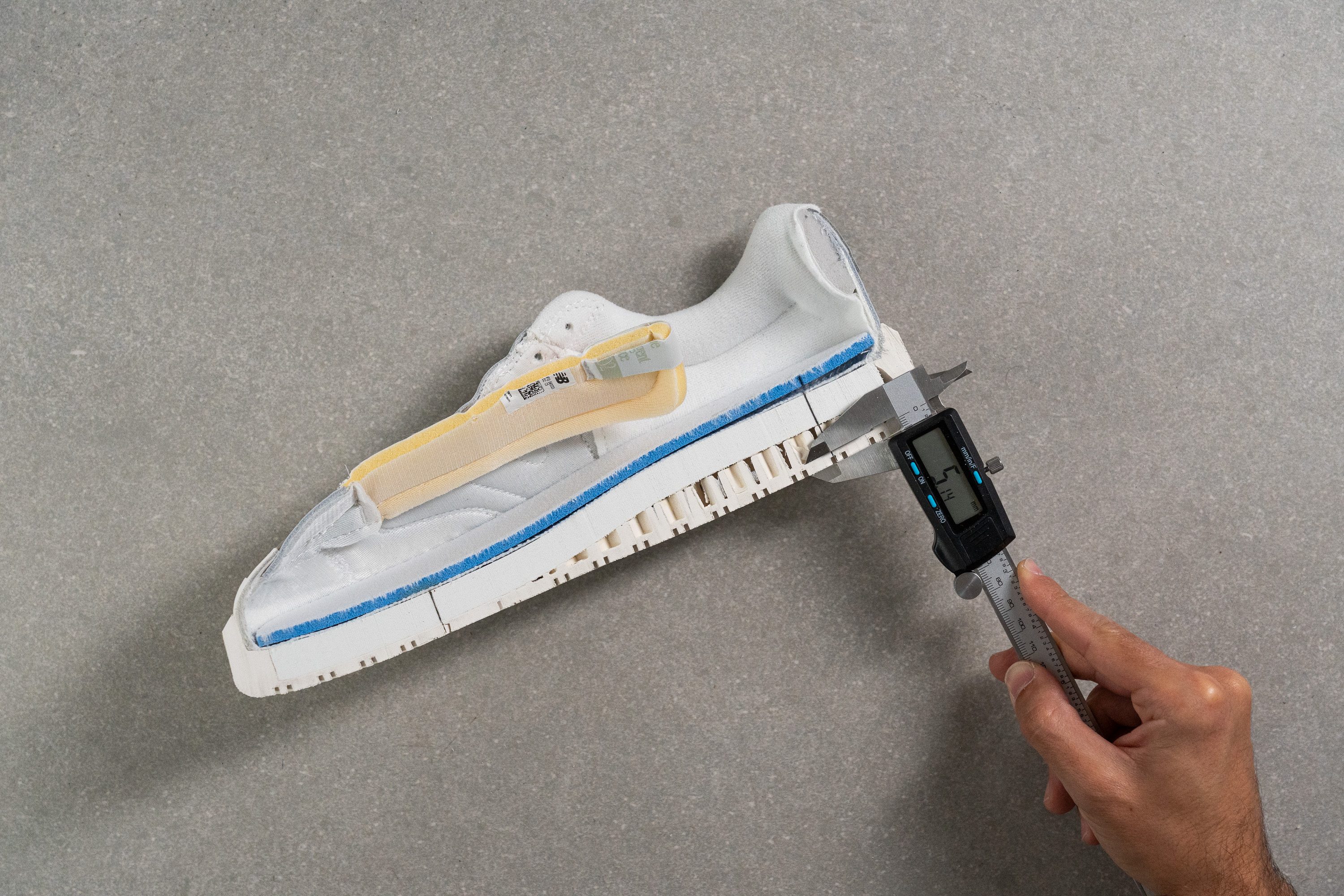
| CT302 | 5.1 mm |
| Average | 5.3 mm |
Misc
Insole thickness
The CT302’s midsole is quite meager compared to our current lab average at only 4.3 mm thick. However, this wasn’t an issue as the shoe’s internal platform still feels nice and soft on the foot.
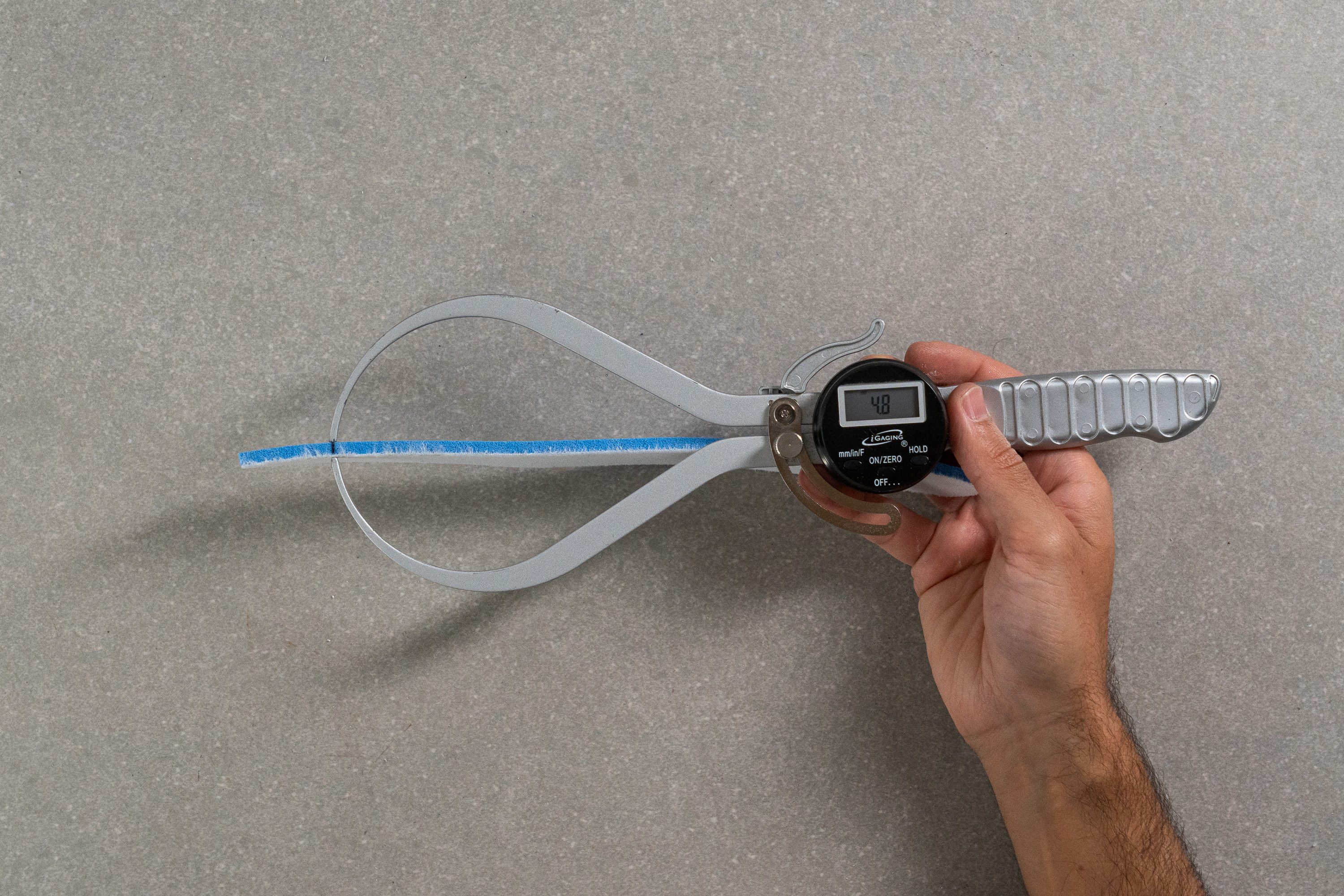
| CT302 | 4.8 mm |
| Average | 5.1 mm |
Removable insole
The CT302’s insole is fully removable, so those in need of custom orthotics can use them with this shoe.
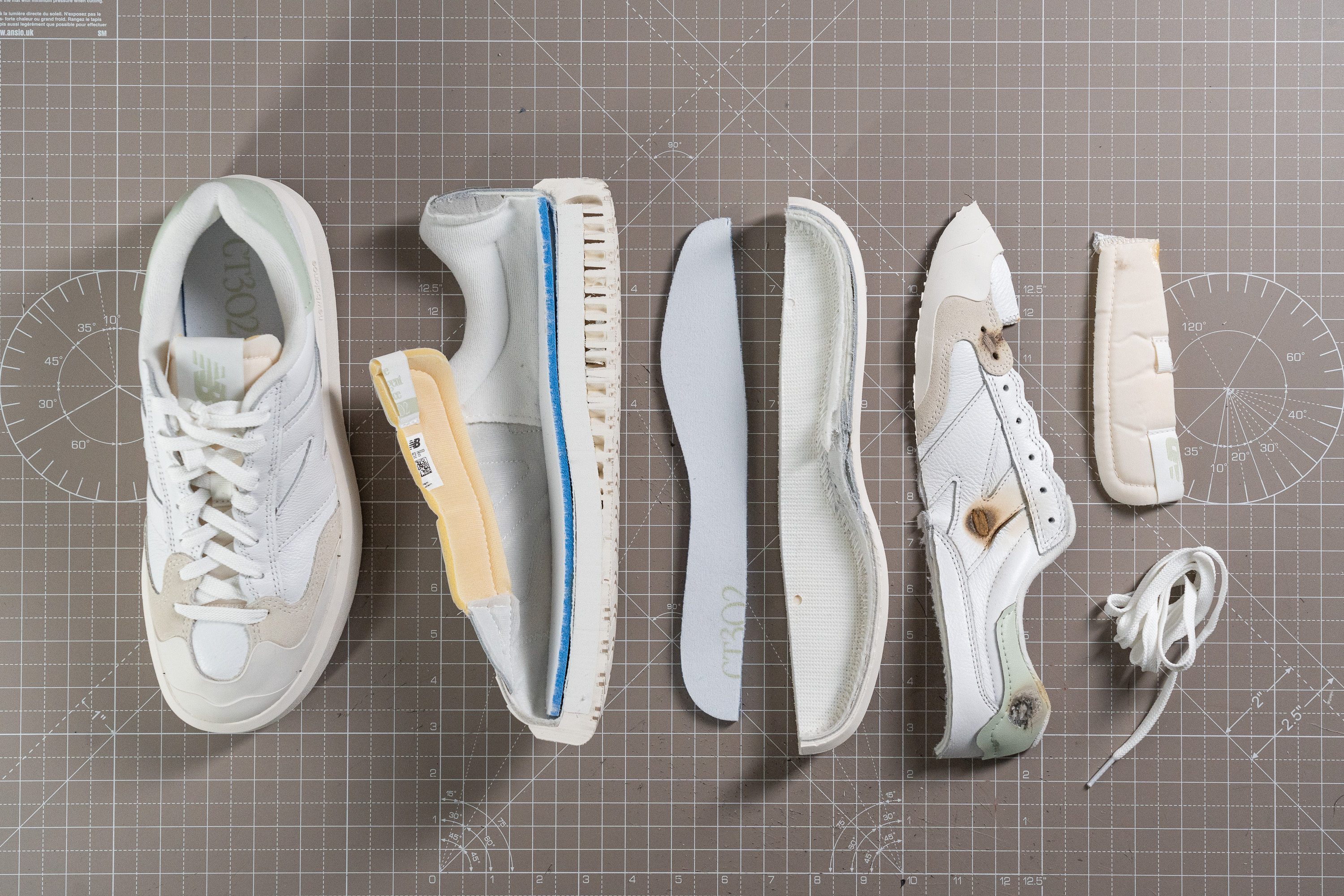
| CT302 | Yes |
Reflective elements
The CT 302 has no reflective elements whatsoever.
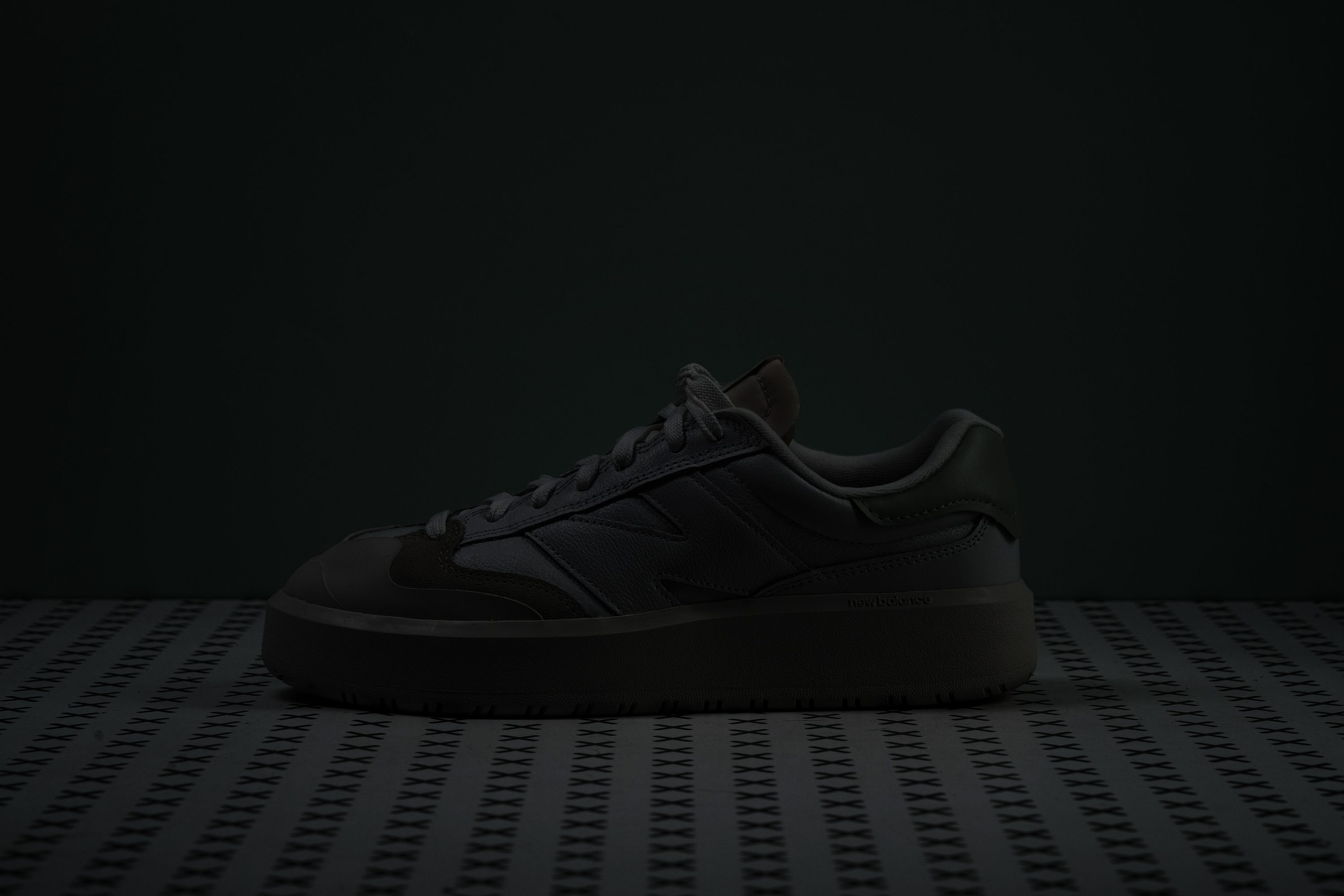
| CT302 | No |
Tongue padding
We measured the CT302’s tongue to be 6.1 mm thick which is right on par with our current lab average. This is a good amount of padding that provides good comfort around the instep while also providing a solid midfoot lockdown.
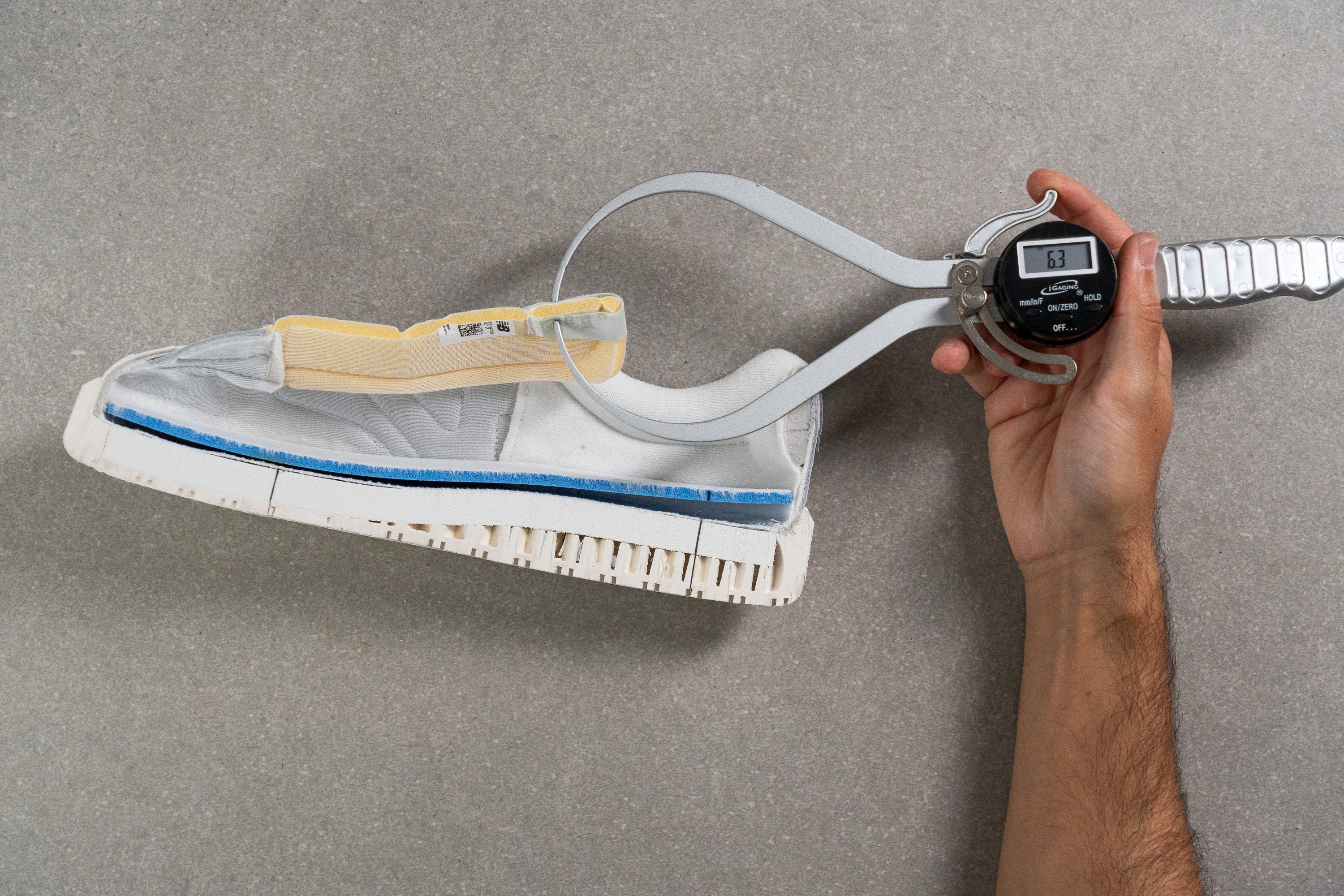
| CT302 | 6.3 mm |
| Average | 9.6 mm |
Tongue: gusset type
The CT302’s tongue is non-gusseted, though this didn’t present any issues when walking around as it managed to stay in place quite well.
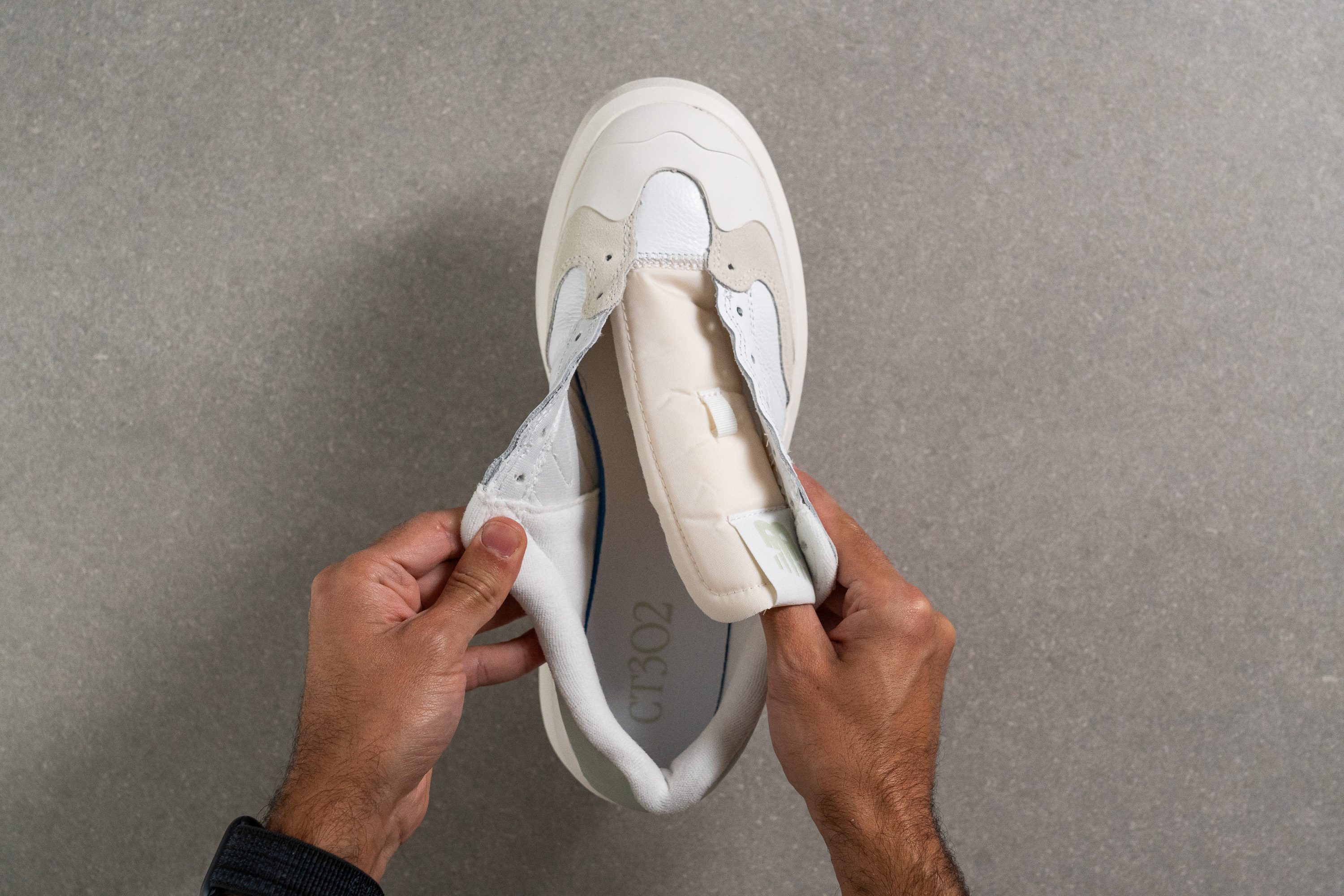
| CT302 | None |

